Prologue
Prince Desiré has lost his way in the woods during a storm. Half fearful, half curious, he seems to feel himself drawn further on by supernatural forces. The atmosphere surrounding him has been strangely transformed. He thinks he sees a castle in the distance, and for a few seconds the vision of a sleeping princess appears. He loses consciousness.
Act 1
When Desiré revives he finds himself inside the palace he had glimpsed. There is a beautiful woman in the room with him. He tries to introduce himself but she does not respond, and he realizes that he is invisible to her. It is snowing outside. He sees how the woman goes over to a cradle and, in an attack of hysteria, knocks it over. The cradle is empty. A man comes in and calms the woman. Hardly has he left when she, going to the mirror and gazing into it, sees her own reflection. It is holding a child. Deeply gratified, she understands the significance of this miracle: she is at last to become a mother. The seasons seem to fly past. The bare winter room takes on aspects of summer. Servants come to decorate it for a celebration. Catalabutte, the court dancing master, supervises the preparations for the imminent christening and gives last-minute corrections. Desiré, unseen by the others, observes all this. Catalabutte has prepared an allegorical ballet to celebrate the occasion. Some ladies in waiting are to dance this allegory in honor of the little princess who is to be given the name of Aurora. The amused Desiré observes the entrance of the guests. The last to enter the hall are the beautiful woman and her husband in whom the Prince now recognizes the King and his Queen. Catalabutte now gives the sign for the celebration to continue with the ballet "The Triumph of Dawn". Court ladies figure as stars, each representing a particular virtue that is to be given to the child. All of these, however, are outshone by Aurora, the "rose of dawn ascendant". After this divertissement the celebrations come to an end. With a last look at their long awaited, much-loved child, the royal couple leave Aurora in the care of her nurse. Desiré is now horrified to see spectral shapes enter the room through the mirror. With terrifying gestures of magical invocation they approach the cradle and cast spells on the child. The Princess will grow up, but she will prick her finger on a thorn and die. Desiré tries desperately to counteract this evil influence but because he is not of the same world, his efforts are to no avail. Powerless, he turns away in despair and covers his eyes. Unnoticed by him the Good Fairy enters through the mirror and modifies the evil spell. Aurora will not die, but fall into a hundred-year sleep until the kiss of a prince awakens her to life again. As if he had sensed the prophecy, Desiré is now possessed by the idea of saving Aurora, come what may. He turns, sees the growing Princess in the mirror, and tries to join her. All at once the vision is gone. The Queen, unaware of what has taken place, enters the room to see and embrace her child. Much disturbed, the Prince tries to comprehend what he has experienced.
Act 2
Scenes of Aurora's childhood and youth pass quickly before Desiré's observing eyes. He sees the six-year-old Princess and how she thwarts Catalabutte's every effort to teach her. She is up to every trick that will get her out of her dance lessons. He observes how the eleven-year-old prefers to dress up in her mother's clothes rather than study, and finally he is present at her sixteenth birthday celebration. He sees the foreign princes who have come to ask for her hand in marriage and how the King introduces them to his daughter. In vain does Desiré attempt to get Aurora's attention. He is just as invisible for her as for the other palace residents. The grand birthday celebration, the Festival of Roses, begins outside. The princes use this opportunity to approach Aurora but she, to Desiré's relief, is not interested in any of them. Only once does the Egyptian prince manage to capture her attention with a particularly exotic rose. But when Aurora takes it in her hand she pricks herself on one of its thorns and sinks to the ground in a faint. The court is frozen in a state of shock. Only Desiré is able to see that the Egyptian was actually the evil spirit which had once put its curse upon the child. Slowly the assemblage recovers and gathers around the Princess, to all appearances dead. The King carries his daughter into her bedroom. It is then that the Good Fairy appears and makes good her prophecy: she puts the whole court into a deep sleep. Desiré, Lost in his thoughts, is the only one not affected by her benevolent spell.
Act 3
Prince Desiré discovers himself to be in the woods again. His thoughts are governed by his Desiré to learn more about the strange events. A curious dream vision appears before his eyes. He sees shadowy figures which resemble Aurora, and then the Princess herself in their midst. She appears to be calling him. He hurries after the vision but it slips away from him and the pictures he thought he saw disappear from sight as fleetingly as they had appeared. His heart full of longing and love, Desiré determines to rescue Aurora, and leaves in search of the enchanted castle. As if lead by some benevolent spirit he prevails successfully over all obstacles. He overcomes the Evil Fairy who tries to block his path and strides unhesitatingly through the wall of thorns that surrounds the castle. Numberless youths have lost their lives here before him, but he reaches the palace hall unharmed and climbs the steps 10 Aurora's bedroom. He observes her asleep for what seems like ages and as soon as she begins to stir he hides himself. Aurora discovers, to her amazement, that she is surrounded by collapsing walls and human beings who appear to be dead. Believing she is completely alone, she bursts into tears. The Prince puts an end to her anguish, takes her in his arms, and kisses her. It is now that the rest of the court begins to awaken. Preparations are made for Aurora's marriage to Prince Desiré. Catalabutte as usual takes care of all of the details and imagines the first steps for the bridal dance that will be performed that evening. Clothed in its hundred-year-old court dress, the wedding company begins to assemble. As the master of ceremonies Catalabutte, completely in his element, sets up the order of the dances and intermezzos which will be performed for the general edification and amusement of the assemblage. After an opening polonaise the entree "The Blessings of Cupid" begins the festivity. Catalabutte has called the next ballet number, in which he himself appears, "The Bluebird, or the Rescue of Princess Florine". Desiré's and Aurora's bridal dance crowns the festivity. At the climax of the following general dance the Prince is suddenly seized by a spell of dizziness.
Epilogue
As if he were awakening from a dream Desiré starts up. He is in the woods. It has stopped raining. In front of him, on a park bench, is a girl who appears to be sleeping.
Time: Baroque
Place: Europe
Prologue (The Christening)
King Florestan XXIV and his Queen have welcomed their first child, Princess Aurora, and declare a grand christening ceremony to honor her. Six fairies are invited to the ceremony to bestow gifts on the child. Each fairy brings a gift of a virtue or positive trait, such as beauty, courage, sweetness, musical talent, and mischief. The most powerful fairy, the Lilac Fairy, arrives with her entourage, but before she can bestow her gift, the evil fairy Carabosse arrives with her minions. Carabosse furiously asks the King and Queen why she had not received an invitation to the christening. The blame falls on Catalabutte, the Master of Ceremonies who was in charge of the guest list. Carabosse gleefully tears his wig off and beats him with her staff, before placing a curse upon the baby princess as revenge: Aurora will indeed grow up to be a beautiful, healthy, delightful young lady, but on her sixteenth birthday she will prick her finger on a Spindle and die. The King and Queen are horrified and beg Carabosse for mercy, but she shows none. However, the Lilac Fairy intervenes. Though she does not have enough power to completely undo the curse, she alters it, allowing the spindle to cause a peaceful 100-year sleep for the princess, rather than death. At the end of those 100 years, she will be woken by the kiss of a handsome prince. Relieved that Aurora's life will ultimately be spared, the court is set at ease.
Act I (The Spell)
It is the day of Princess Aurora's sixteenth birthday. Celebrations are underway, though the King is still unsettled by Carabosse's omen. The master of ceremonies discovers several peasant ladies frolicking about with knitting needles and alerts the King, who initially sentences the women to a harsh punishment. The Queen gently persuades him to spare the innocent citizens, and he agrees. An elaborate waltz is performed and Princess Aurora arrives. She is introduced to four suitors by her doting parents. Aurora and the suitors perform the famous Rose Adagio. Presently, a cloaked stranger appears and offers a gift to the princess: a spindle. Having never seen one before, Aurora curiously examines the strange object as her parents desperately try to intervene. As predicted, she pricks her finger. While initially appearing to recover quickly, she falls into a swoon and collapses. The cloaked stranger reveals herself to be Carabosse, who believes that her curse still stands and that the princess is dead. Once again, the Lilac Fairy quells the hubbub and reminds the King and Queen that Aurora is merely asleep. The princess is carried off to bed, and the Lilac Fairy casts a spell of slumber over the entire kingdom, which will only be broken when Aurora awakens. A thick layer of thorny plants grows over the palace, hiding it from view.
Act II (The Vision)
One hundred years later, Prince Désiré is attending a hunting party. Though his companions are lighthearted, the prince is unhappy and eventually asks to be left alone. On his own in the forest, he is met by the Lilac Fairy, who has chosen him to awaken Aurora. She shows him a vision of the beautiful princess, and the prince is immediately smitten. The Lilac Fairy explains the situation, and Désiré begs to be taken to the princess. The Lilac Fairy takes him to the hidden castle. Carabosse makes one last attempt to cement her vengeful curse, but the Lilac Fairy and the prince manage to defeat her together at last. Once inside the castle, Désiré awakens Aurora with a kiss. The rest of the court wakes as well, and the King and Queen heartily approve when the prince proposes marriage and the princess accepts.
Act III (The Wedding)
The royal wedding is underway. Guests include the Jewel Fairies: Diamond, Gold, Silver and Sapphire, and of course the Lilac Fairy. Fairytale characters are in attendance, including Puss in Boots and The White Cat, Princess Florine and the Bluebird, and others. Aurora and Désiré perform a grand Pas de Deux, and the entire ensemble dances. The prince and princess are married, with the Lilac Fairy blessing the union.
Structure
Titles of all of the numbers listed here come from Marius Petipa's original scenario, as well as the original libretto and programs of the first production of 1890. Major changes which were made to the score for Petipa's original production are mentioned, and help explain why the score is often heard in different versions in theatres today.
All libretti and programs of works performed on the stages of the Imperial Theatres were titled in French, which was the official language of the Emperor's Court, as well as the language in which balletic terminology is derived.
Prologue — Le baptême de la Princesse Aurore


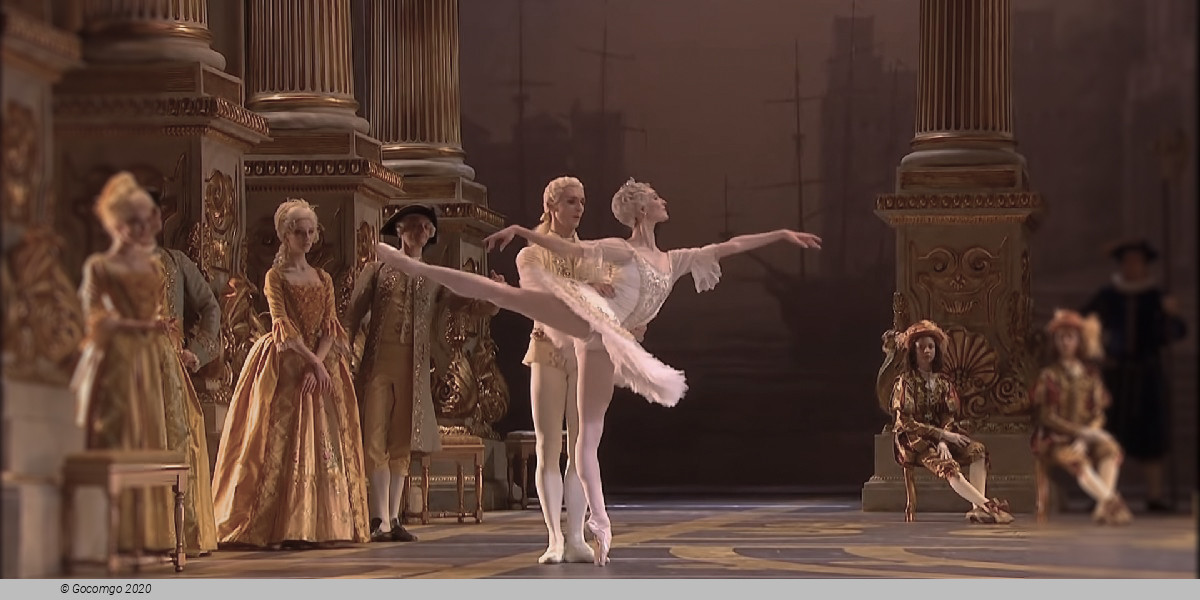
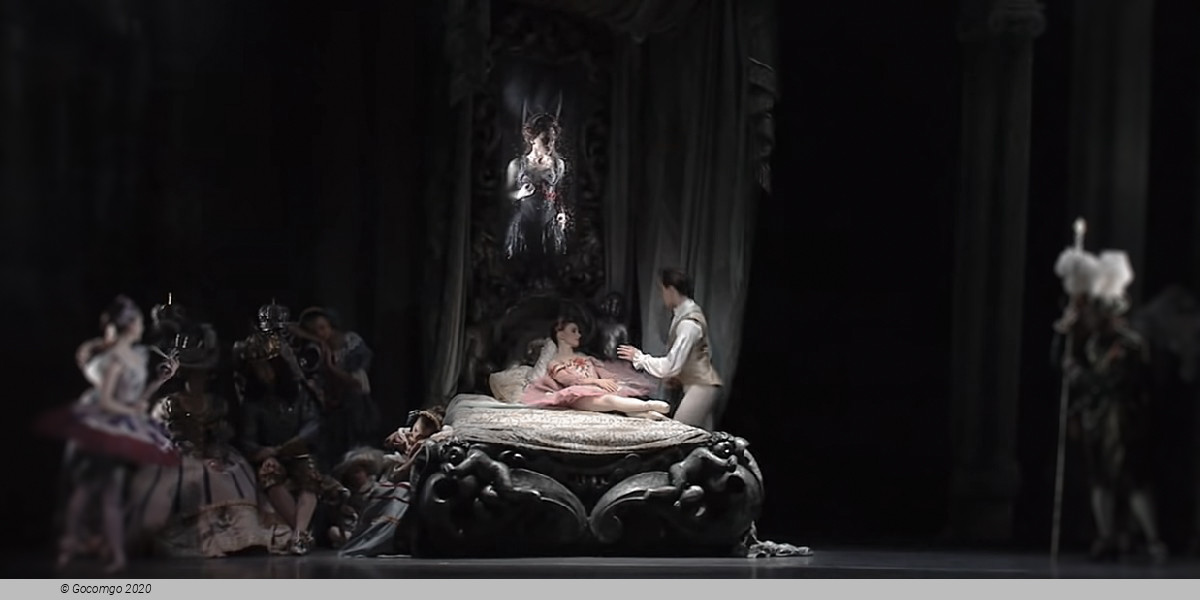
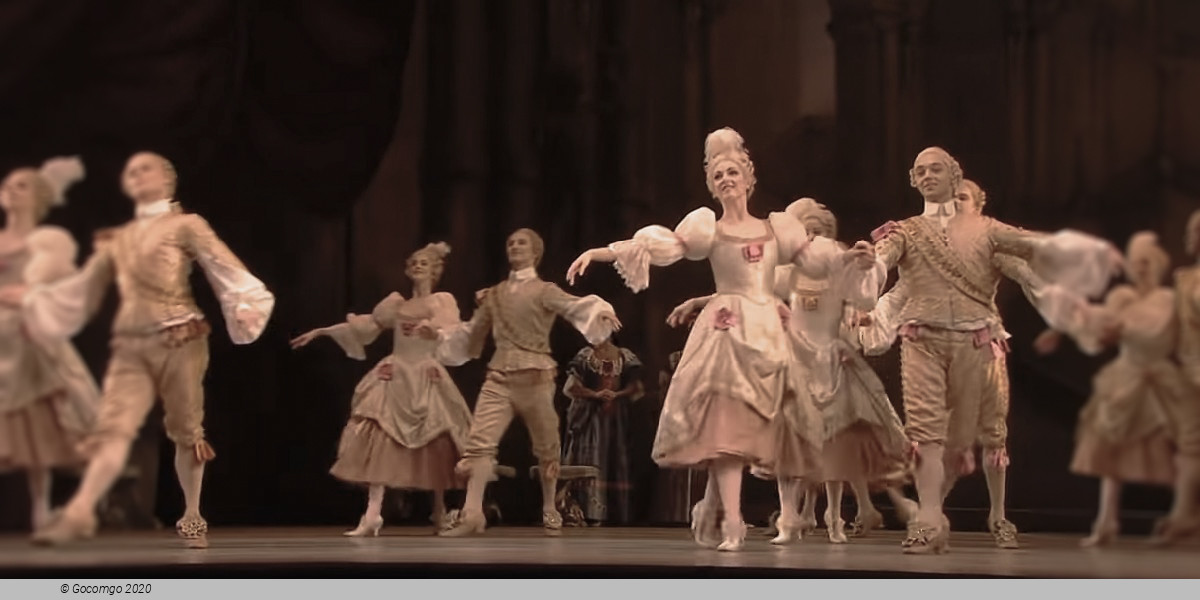
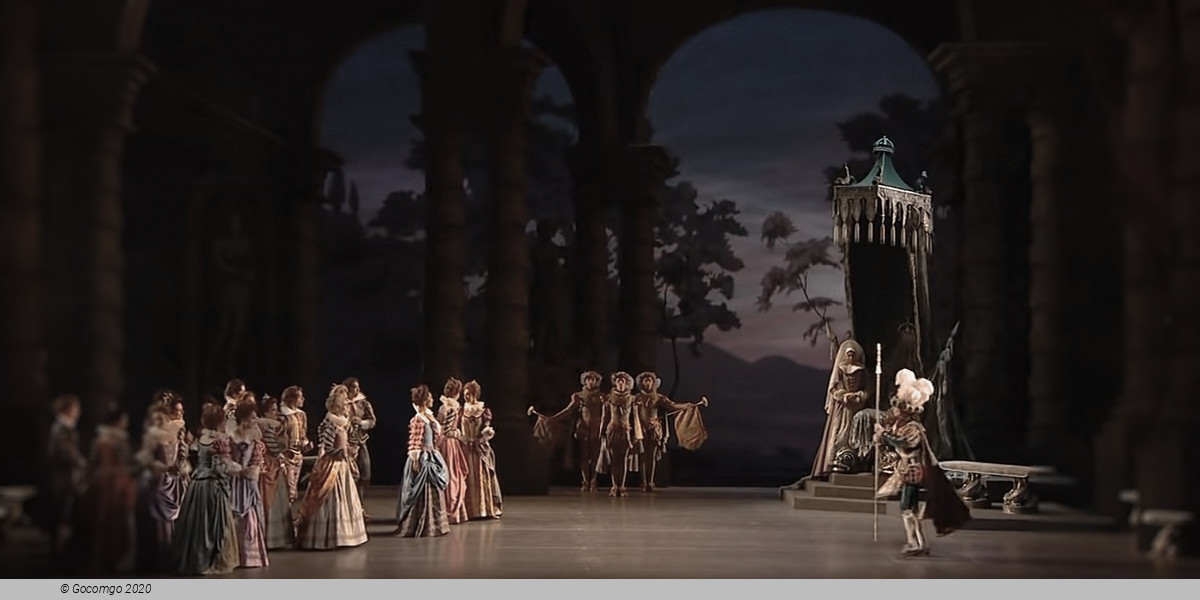
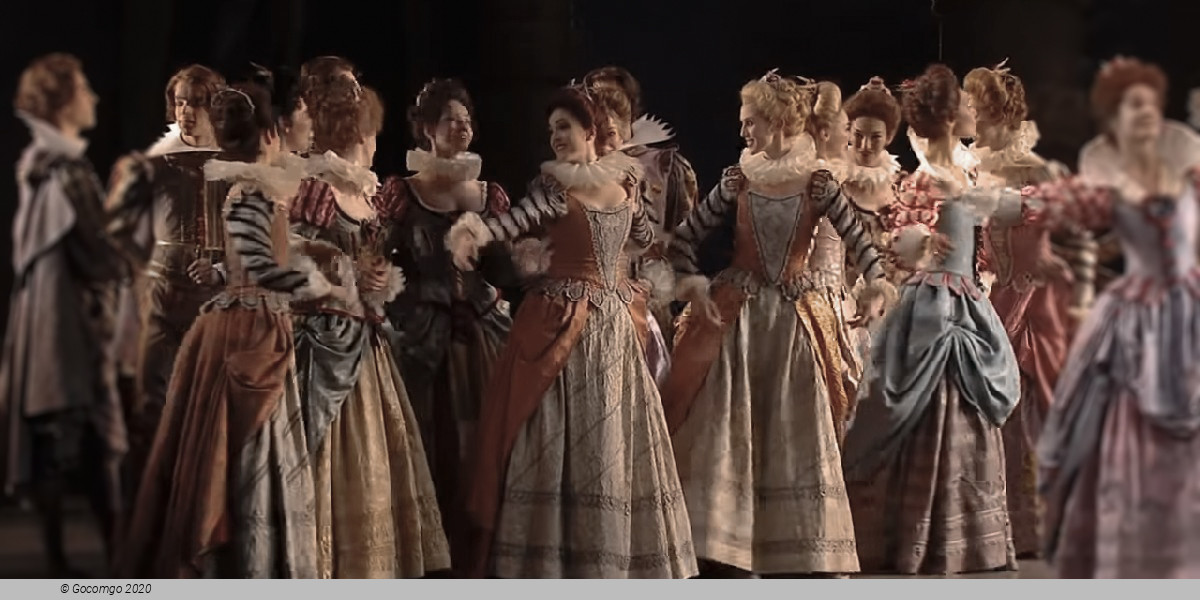
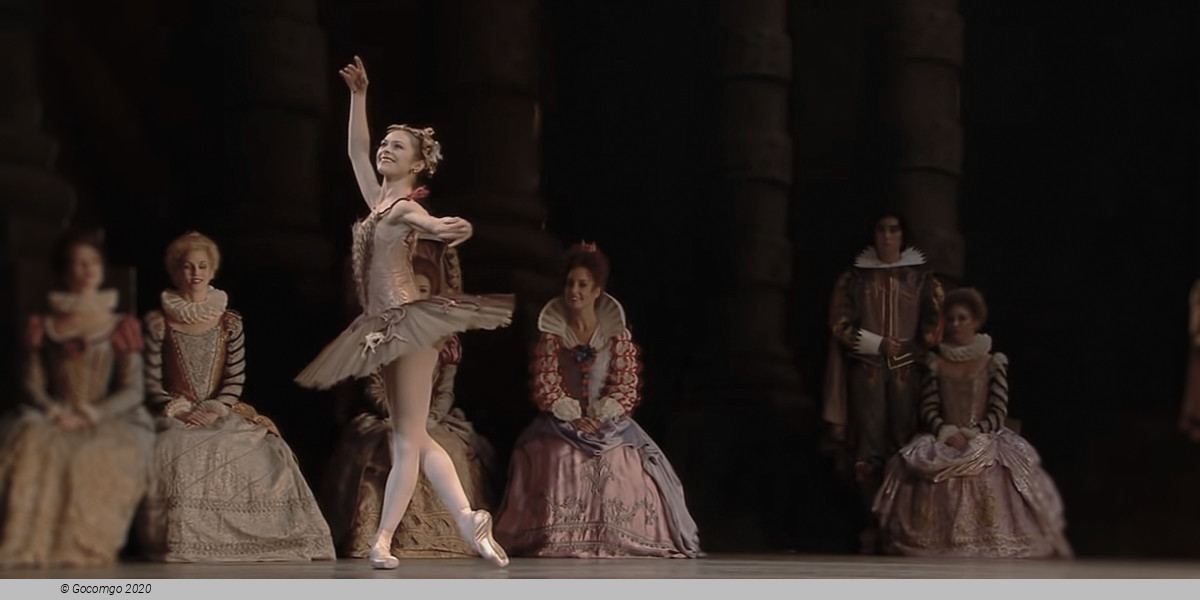
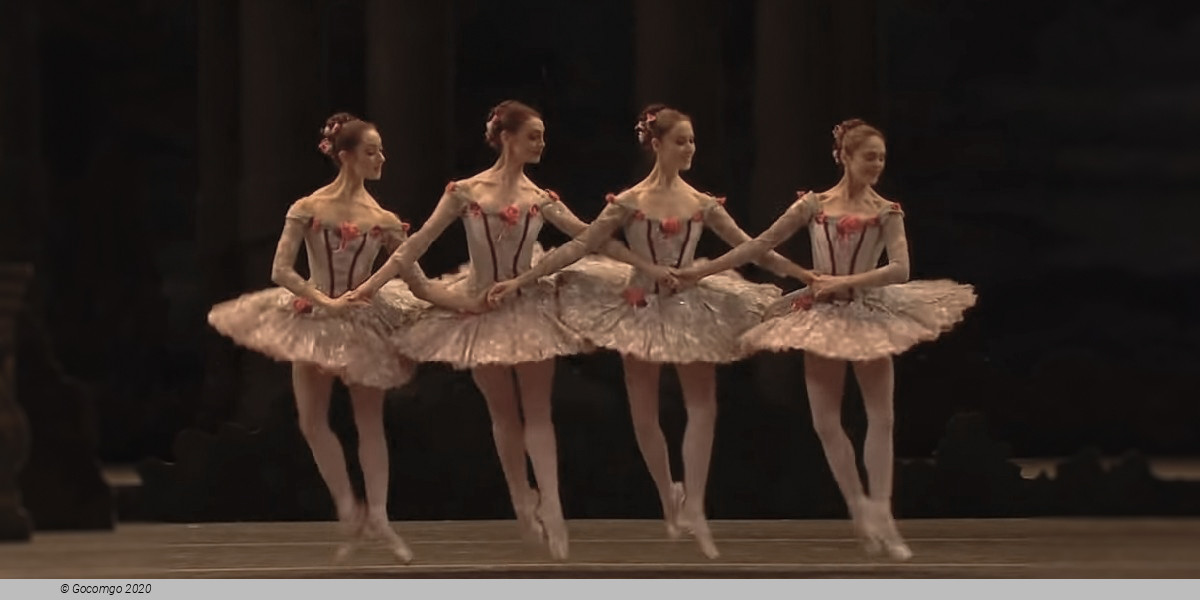
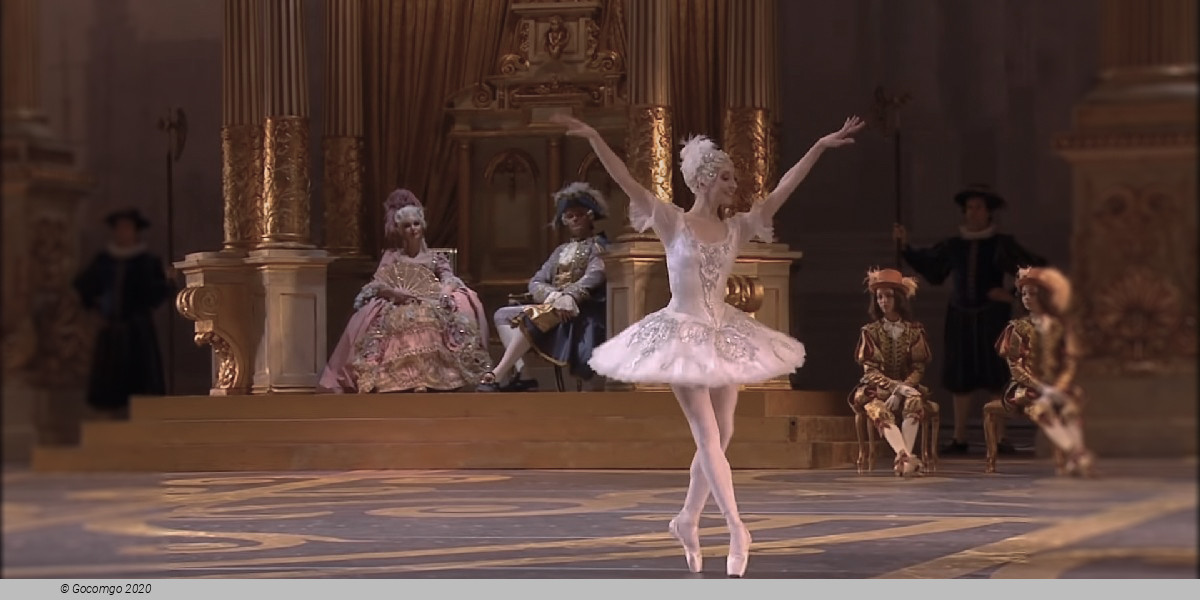
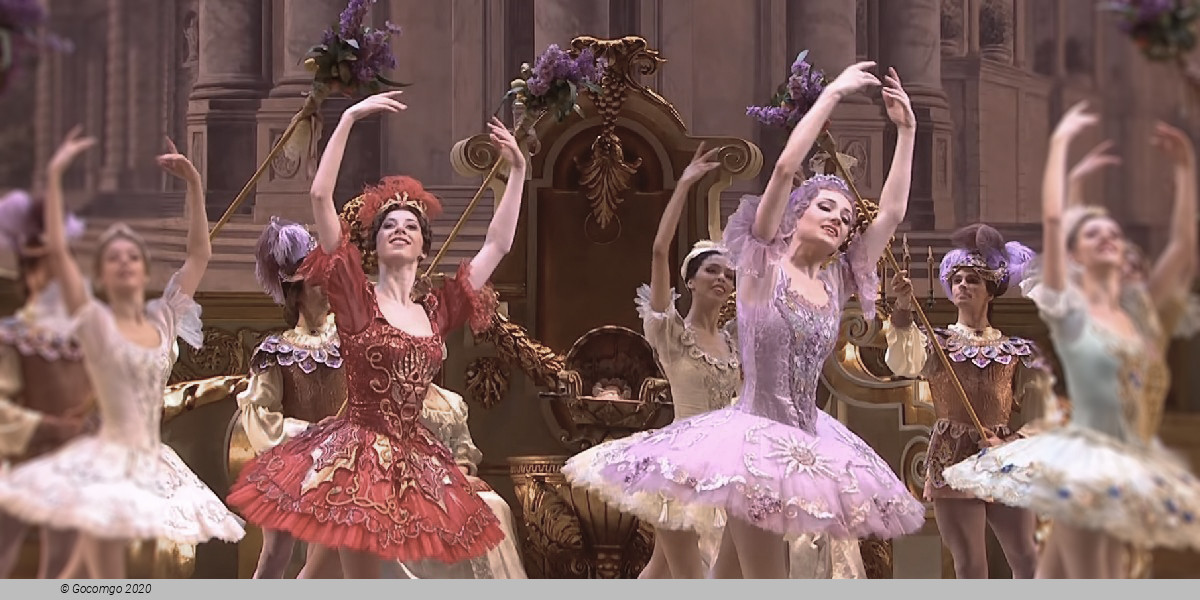
 Große Theaterstraße 25
Große Theaterstraße 25